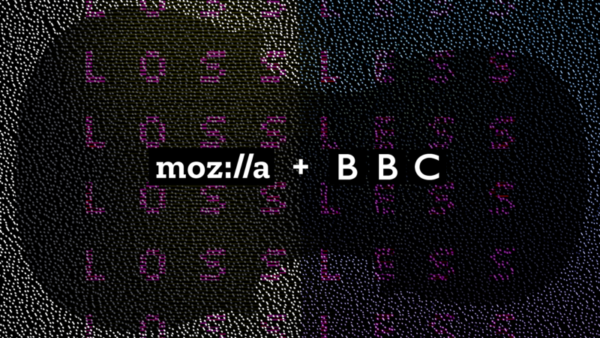Radio technology has advanced dramatically since the comparatively ancient days of antennas and transmitters. Today the majority of people listen to online radio as more and more broadcasts are consumed via the Internet rather than terrestrial radio. As radio has moved online, the medium has benefitted from improvements to sound quality difficult to achieve via the airwaves. Later this summer radiophiles and audiophiles will enjoy the uncompromised accuracy of lossless audio provided by FLAC thanks to an informal engineering collaboration between the British Broadcast Corporation and Mozilla.
This summer, the BBC is marking the 90th anniversary of it’s classical music concert festival, The Proms, by streaming the music in high quality, lossless audio. The BBC launched a trial of Radio 3 in lossless audio, using FLAC and MPEG-DASH. The BBC’s Research and Development team worked with Mozilla’s engineering team to bring the project to life.
DASH (Dynamic Adaptive Streaming over HTTP) is one way to stream content online. But until recently, there wasn’t a way to carry the high quality FLAC (Free Lossless Audio Codec) along with it. Compare this to an AAC codec, which is what the BBC is currently using. The AAC codec is classified as lossy meaning the compression discards some parts of the file that you are least likely to be able to hear. Those losses, however, can diminish the richness and fullness of sound, particularly for serious audiophiles and listeners with well-trained ears.
In contrast, FLAC is a lossless compression format. Unlike AAC, FLAC format delivers pristine audio quality because nothing is lost in the compression and decompression used for transmission over the Internet.
“We thought that an open and royalty-free technology like FLAC was an obvious choice for compression,” explains Dave Evans a Tehnologist from the R&D team. “FLAC is also well supported across hardware and software.”
This means two million BBC listeners anywhere in the world streaming the popular Proms concerts will feel like they are sitting in a live performance in historic Royal Albert Hall in London. They’ll enjoy everything from Mozart Violin concertos and Beethoven’s famous “Eroica” symphony with impeccable fidelity and clarity.
“Radio 3’s listeners often expect the best quality possible from us — many are audiophiles and so we have a history of trialling new technologies such as binaural and surround sound. Lossless is a natural step in our ongoing experiments”, says Lloyd Wallis, a software engineer at the BBC who helped bring the project to life.
A codec is a program to compress or decompress files, such as video and audio. Codec is shorthand for ‘coder decoder.’ Video and audio files tend to be very large and would take up a lot of disk space if they weren’t compressed. This also makes them hard to send over the Internet as streaming files. Codecs are essential to reducing the amount of data sent over the Internet to a more manageable volume.
To date, however, lossless codecs have not been used much for web streaming or internet radio. In January 2017, Firefox became the first browser to support FLAC in the MP4 container. The container bundles everything together which is crucial because putting FLAC inside allowed the BBC to reuse everything engineers have already built.
“It was exciting to collaborate with the BBC to build an experiment with the FLAC. We agreed that standardizing FLAC inside MP4 would be best for the Web Platform because it allows the BBC and other sites to reuse all their existing MP4 based streaming infrastructure,” says Anthony Jones, Manager of Platform Media at Mozilla.
Jones added that the ongoing collaboration is significant because of the BBC’s status as a public service broadcaster, which aligns with Mozilla’s goal of providing open and freely available resources for innovation. “We have a strong working relationship with Mozilla and regularly talk to the Mozilla developers around issues and changes in online audio,” said the BBC’s Wallis.
Other browsers are considering support for FLAC in MP4. “We hope that in time they will follow suit, and that mobile devices will also add the necessary functionality,” says Wallis of the BBC.
The FLAC pilot will run through the end of the Proms on September 9. The Proms includes hundreds of shows over eight weeks. You can listen in at the BBC Proms site or the BBC Radio 3 site.
